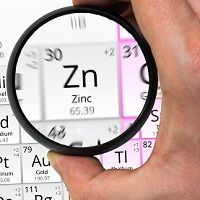Article
Low-Calorie Diet? Add Zinc and Protein
Author(s):
A new article indicates that protein consumption promotes zinc bioavailability in patients on low energy diets. all participants were insulin resistant at baseline and zinc had the expected inverse associations with body fat percentage and fat-free mass index.

Zinc plays a role in metabolism, endocrine regulation, immune response, and normal growth and development during adolescence. Zinc deficiency may contribute to poor growth, inattention, insulin insensitivity, and cardiovascular disease. Current zinc status, physiological state, and phytate intake impact zinc absorption. The current understanding of low energy diets’ impact on zinc deficiency is poor, especially in adolescents.
Now, an article published ahead-of-print in Annals of Nutrition and Metabolism indicates protein consumption promotes zinc bioavailability in patients on low energy diets.
The study investigators randomized 87 obese adolescents into low energy diets either high in carbohydrates or moderate in carbohydrates and high in protein. The patients recalled their meals in the past 24 hours at three-week intervals and the investigators measured their plasma zinc concentration and cardiometabolic markers.
Greater zinc and protein intake promotes adequate zinc stores and high-carbohydrate diets contain more absorption-inhibiting phytates (often called “antinutrients”, they bind to minerals and are found in grains and potatoes).
The phytate found in unrefined grains rich in fiber may have caused the preponderance of low zinc concentrations in the high-carbohydrate diet participants. Plasma zinc concentrations did not change appreciably over the 12-week study period due to the short time period, small sample size, and similar zinc intake in both groups.
This study did not find a relationship between plasma zinc concentration and insulin sensitivity. However all participants were insulin resistant at baseline and zinc had the expected inverse associations with body fat percentage and fat-free mass index.
Dietary zinc intake, phytate intake, and percentage energy from protein and carbohydrates impact zinc plasma concentrations. Providers should suggest increased protein intake for obese adolescents at risk for type 2 diabetes in order to improve zinc absorption.
Related Coverage:
Study of Mice Provides Insight on How Fructose Consumption Spurs Diabetes
Studying the Link Between Exercise and Insulin Sensitivity
Obese Women with Gestational Diabetes Who Lose Weight Reap Birthing Benefits




